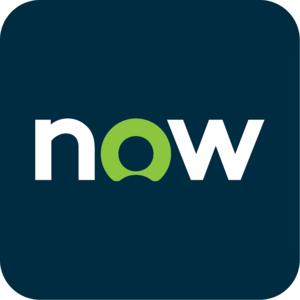Simplifying Salesforce Clouds: Understanding the Versatility of CRM Solutions
Welcome to the realm of Salesforce Clouds, where innovation intersects with business transformation. As the top CRM platform, Salesforce unleashes a constellation of potent clouds, reshaping how organizations operate and engage customers. From streamlining operations to fostering growth, these clouds revolutionize the way businesses thrive. Explore their power and discover the possibilities that await in this captivating world of Salesforce Clouds.
1. Salesforce Sales Cloud
Salesforce Sales Cloud serves as the foundation for managing sales-related activities within an organization. It provides a centralized platform for sales teams to effectively track and nurture leads, manage opportunities, and maintain customer relationships. With its robust set of features, Sales Cloud enables businesses to streamline their sales processes, improve collaboration among team members, and drive revenue growth.
Key Features
- Lead Management: Sales Cloud offers comprehensive lead management capabilities, allowing businesses to capture, track, and prioritize leads effectively. It provides tools for lead qualification, lead assignment, and lead nurturing, empowering sales teams to focus on high-potential prospects.
- Opportunity Management: The platform enables sales teams to manage their opportunities throughout the sales cycle. It offers opportunity tracking, forecasting, and pipeline management, providing insights into sales performance and improvement areas.
- Contact and Account Management: Sales Cloud offers robust contact and account management features, allowing sales professionals to maintain a centralized database of contacts and accounts. This enables them to effectively track customer interactions, manage customer information, and deliver personalized sales experiences.
- Sales Collaboration Tools: To foster collaboration among sales teams, Sales Cloud provides features such as real-time updates, shared calendars, and collaborative workspaces. These tools enable sales professionals to align their efforts, share important information, and collaborate seamlessly.
Benefits and Use Cases
Sales Cloud offers numerous benefits to businesses across various industries. By leveraging its features, organizations can streamline their sales processes, improve team collaboration, and enhance customer experiences. For instance, a manufacturing company can utilize Sales Cloud to track leads from multiple channels, assign them to the appropriate sales representatives, and monitor the progress of each opportunity. This helps the company improve lead conversion rates, optimize sales strategies, and ultimately drive revenue growth.
2. Salesforce Service Cloud
Service Cloud is Salesforce’s cloud-based solution designed to help businesses deliver exceptional customer service and support. It provides a unified platform for managing customer inquiries, resolving issues, and improving overall customer satisfaction. With its comprehensive set of features, Service Cloud enables businesses to provide personalized and efficient customer service across various channels.
Key Features
- Case Management: Service Cloud offers robust case management capabilities, allowing businesses to track and manage customer inquiries and issues effectively. It provides tools for case routing, escalation, and resolution, ensuring that customer requests are handled promptly and efficiently.
- Knowledge Base: Service Cloud enables businesses to create and maintain a centralized knowledge base, containing articles, FAQs, and troubleshooting guides. This empowers customers to find answers to their questions and resolve common issues on their own, reducing the need for agent intervention.
- Live Chat and Chatbots: With Service Cloud, businesses can offer real-time support to customers through live chat functionality. Additionally, the platform allows the integration of chatbots, which can provide automated responses and assist with basic inquiries, freeing up agents to handle more complex issues.
- Social Media Integration: Service Cloud integrates social media channels for customer engagement on platforms like Twitter and Facebook. This integration enables businesses to respond to inquiries and address issues across multiple channels, providing a seamless support experience.
Benefits and Use Cases
Service Cloud offers significant benefits to businesses seeking to enhance their customer service capabilities. By leveraging its features, organizations can provide personalized support, improve response times, and increase customer satisfaction. For example, a telecommunications company can utilize Service Cloud to manage customer inquiries received through various channels such as phone, email, and social media. The platform’s case management and knowledge base functionalities enable agents to provide consistent and efficient support, resulting in improved customer experiences and loyalty.
3. Salesforce Marketing Cloud
Marketing Cloud is a powerful tool that empowers businesses to create and deliver personalized marketing campaigns across multiple channels. It enables organizations to engage with their customers at every stage of the customer journey, from awareness to advocacy. With its comprehensive set of features, Marketing Cloud helps businesses drive brand awareness, generate leads, and nurture customer relationships.
Key Features
- Email Marketing: Marketing Cloud provides robust email marketing capabilities, allowing businesses to create and send personalized email campaigns to their target audience. It offers features such as email templates, automation workflows, and A/B testing, enabling organizations to optimize their email marketing strategies and drive higher engagement.
- Social Media Marketing: The platform allows businesses to manage and schedule their social media posts across various platforms, including Facebook, Twitter, and Instagram. With features like social media listening and engagement tracking, Marketing Cloud enables organizations to monitor and analyze the effectiveness of their social media campaigns.
- Customer Journey Mapping: Marketing Cloud provides tools for visualizing and mapping the customer journey, helping businesses understand and optimize their interactions with customers at each touchpoint. This enables organizations to deliver personalized and relevant content to their target audience, enhancing the overall customer experience.
- Analytics and Reporting: Marketing Cloud offers robust analytics and reporting capabilities, allowing businesses to track and measure the performance of their marketing campaigns. It provides insights into key metrics such as open rates, click-through rates, and conversion rates, enabling organizations to make data-driven decisions and continuously improve their marketing efforts.
Benefits and Use Cases
Marketing Cloud offers numerous benefits to businesses looking to enhance their marketing strategies and drive better results. By leveraging its features, organizations can create personalized and targeted campaigns, improve customer engagement, and increase ROI. For example, an e-commerce retailer can utilize Marketing Cloud to segment its customer base, create personalized email campaigns based on customer preferences and behavior, and track the effectiveness of these campaigns through analytics. This helps the retailer optimize its marketing efforts, drive higher conversion rates, and ultimately increase sales.
4. Salesforce Commerce Cloud
Commerce Cloud, formerly known as Demandware, is Salesforce’s cloud-based e-commerce platform that empowers businesses to create and deliver seamless online shopping experiences. It provides a comprehensive set of tools and functionalities to manage all aspects of e-commerce, from product catalogue management to order fulfilment. With Commerce Cloud, businesses can create personalized and engaging online storefronts, optimize their merchandising strategies, and drive revenue growth.
Key Features
- E-commerce Platform: Commerce Cloud offers a robust e-commerce platform that enables businesses to build and customize their online storefronts. It provides features such as product catalogue management, shopping cart functionality, and secure payment processing, ensuring a seamless and secure online shopping experience for customers.
- Personalization and Recommendation Engine: The platform enables businesses to deliver personalized product recommendations and content to their customers based on their browsing and purchasing behaviour. By leveraging data and machine learning algorithms, Commerce Cloud helps businesses drive cross-selling and upselling opportunities, increasing average order values.
- Order and Inventory Management: Commerce Cloud provides tools for managing orders and inventory in real-time. It allows businesses to efficiently track and fulfill customer orders, manage stock levels, and streamline the shipping and logistics process, ensuring timely and accurate order fulfilment.
- Multi-channel Selling: Commerce Cloud expands e-commerce across channels like mobile and social media. Mobile optimization and social commerce integrations reach customers, boosting sales and brand visibility.
Benefits and Use Cases
Commerce Cloud offers significant benefits to businesses seeking to establish a strong online presence and drive e-commerce success. By leveraging its features, organizations can create compelling online storefronts, deliver personalized shopping experiences, and optimize their merchandising strategies. For instance, a fashion retailer can utilize Commerce Cloud to build an engaging and mobile-responsive e-commerce website, implement personalized product recommendations based on customer preferences, and efficiently manage inventory and order fulfilment. This enables the retailer to provide a seamless shopping experience, drive customer loyalty, and boost online sales.
5. Salesforce Community Cloud
Community Cloud is a powerful platform that enables businesses to create online communities for their customers, partners, and employees. It provides a space for collaboration, knowledge sharing, and engagement, fostering strong relationships and driving productivity. With Community Cloud, organizations can create customized community portals, empower their stakeholders, and build a sense of belonging.
Key Features
- Online Community Building: Community Cloud allows businesses to create secure and branded online communities where customers, partners, or employees can connect and collaborate. It provides customizable templates, drag-and-drop functionality, and branding options to create a unique community experience.
- Collaboration Tools: The platform offers a range of collaboration tools, including discussion boards, file sharing, and group collaboration spaces. These tools enable community members to communicate, share knowledge, and work together on projects or initiatives.
- Knowledge Sharing: Community Cloud facilitates knowledge sharing by providing features such as knowledge bases, FAQs, and documentation repositories. This empowers community members to find answers to their questions, access relevant information, and contribute their expertise to help others.
- Partner and Customer Portals: With Community Cloud, businesses can create dedicated portals for their partners and customers. These portals serve as a central hub for accessing resources, managing accounts, submitting support requests, and accessing training materials. This streamlines processes, enhances self-service capabilities, and improves overall satisfaction.
Benefits and Use Cases
Community Cloud offers numerous benefits to businesses looking to foster engagement, collaboration, and knowledge sharing among their stakeholders. By leveraging its features, organizations can build vibrant communities that drive customer loyalty, improve partner relationships, and enhance employee productivity. For example, a software company can use Community Cloud to build a customer community. Users interact, share best practices, and seek peer assistance. This reduces support costs and fosters customer loyalty, satisfaction, and advocacy.
6. Salesforce Analytics Cloud
Analytics Cloud, also known as Einstein Analytics, is Salesforce’s cloud-based analytics platform that empowers businesses to derive valuable insights from their data. It provides a powerful suite of tools and features to visualize data, perform advanced analytics, and gain predictive insights. With Analytics Cloud, organizations can make data-driven decisions, identify trends, and uncover actionable insights.
Key Features
- Data Visualization: Analytics Cloud offers robust data visualization capabilities, allowing businesses to create interactive and visually compelling dashboards and reports. It provides a wide range of charts, graphs, and widgets to represent data in a meaningful way, making it easier for users to understand and interpret complex information.
- Advanced Analytics: The platform empowers businesses with advanced analytics capabilities, including data exploration, modeling, and blending. Analytics Cloud offers features like drag-and-drop functionality and predictive tools, enabling users to discover patterns, correlations, and trends in their data.
- Predictive Analytics: Analytics Cloud leverages machine learning and artificial intelligence capabilities to provide predictive insights. It can forecast future outcomes, identify key drivers of success or failure, and recommend actions based on data patterns, enabling businesses to make proactive decisions and drive better outcomes.
- Integration with other Salesforce Clouds: Analytics Cloud integrates effortlessly with other Salesforce Clouds like Sales Cloud and Service Cloud. This integration empowers businesses to merge data from multiple sources, gaining a comprehensive overview of their operations. By analyzing the impact of sales or service activities, organizations can make informed, data-driven decisions to enhance business performance.
Benefits and Use Cases
Analytics Cloud offers significant benefits to businesses seeking to harness the power of their data and gain actionable insights. By leveraging its features, organizations can identify areas of improvement, optimize processes, and drive better business outcomes. For instance, a retail company can utilize Analytics Cloud to analyze sales data, identify customer buying patterns, and optimize pricing and inventory strategies. This helps the company make data-driven decisions, improve sales performance, and enhance customer satisfaction.
7. Salesforce Platform and App Clouds
Salesforce Platform and App Clouds offer businesses a scalable infrastructure to build, customize, and deploy tailored applications. With a wide range of tools and services, organizations can extend Salesforce’s functionality and create unique solutions.
Key Features
- App Development and Deployment: Platform and App Clouds offer a range of tools and services for building custom applications. From low-code development options like Salesforce App Builder to traditional coding with Apex and Visualforce, businesses have the flexibility to create applications that meet their unique requirements. The clouds also provide streamlined deployment processes to ensure smooth and efficient application rollouts.
- Customization and Integration: Salesforce Platform and App Clouds allow businesses to customize their Salesforce instance to align with their specific business processes. This includes creating custom objects, fields, workflows, and automation rules. The clouds also offer robust integration capabilities, enabling seamless data exchange and interoperability with external systems and APIs.
- Security and Scalability: Platform and App Clouds prioritize data security and scalability. With robust security measures like access control, encryption, and audit trails, sensitive information stays protected. The clouds handle vast data volumes and scale effortlessly to accommodate growing businesses.
- Mobile App Development: Salesforce Platform and App Clouds offer tools and services for developing mobile applications. This allows businesses to extend their Salesforce capabilities to mobile devices, empowering users to access critical data and perform tasks while on the go. The clouds provide mobile app development frameworks and features like offline data synchronization and push notifications.
Benefits and Use Cases
Salesforce Platform and App Clouds offer immense benefits to businesses seeking to extend the functionality of Salesforce and create tailored applications. By leveraging their features, organizations can streamline processes, improve productivity, and enhance user experiences. For example, a financial services company can utilize Platform and App Clouds to build a custom application for managing loan origination and underwriting processes. The application can be designed to align with the company’s specific workflows and incorporate automation, data validation, and integration with external credit bureaus. This allows the company to optimize its loan processing, reduce manual errors, and improve operational efficiency.
Conclusion
Salesforce Clouds offer diverse solutions to meet business needs, empowering organizations to enhance customer relationships, streamline operations, and drive growth. From Sales Cloud for sales management to Service Cloud for customer service, Marketing Cloud for personalized marketing, Commerce Cloud for e-commerce, Community Cloud for online communities, Analytics Cloud for data insights, and the Platform and App Clouds for custom application development, Salesforce provides an array of tools and functionalities to support businesses in their digital transformation journey. By leveraging these clouds, organizations can unlock new possibilities, optimize their processes, and stay ahead in today’s competitive landscape.






